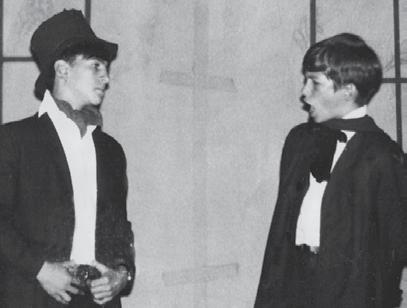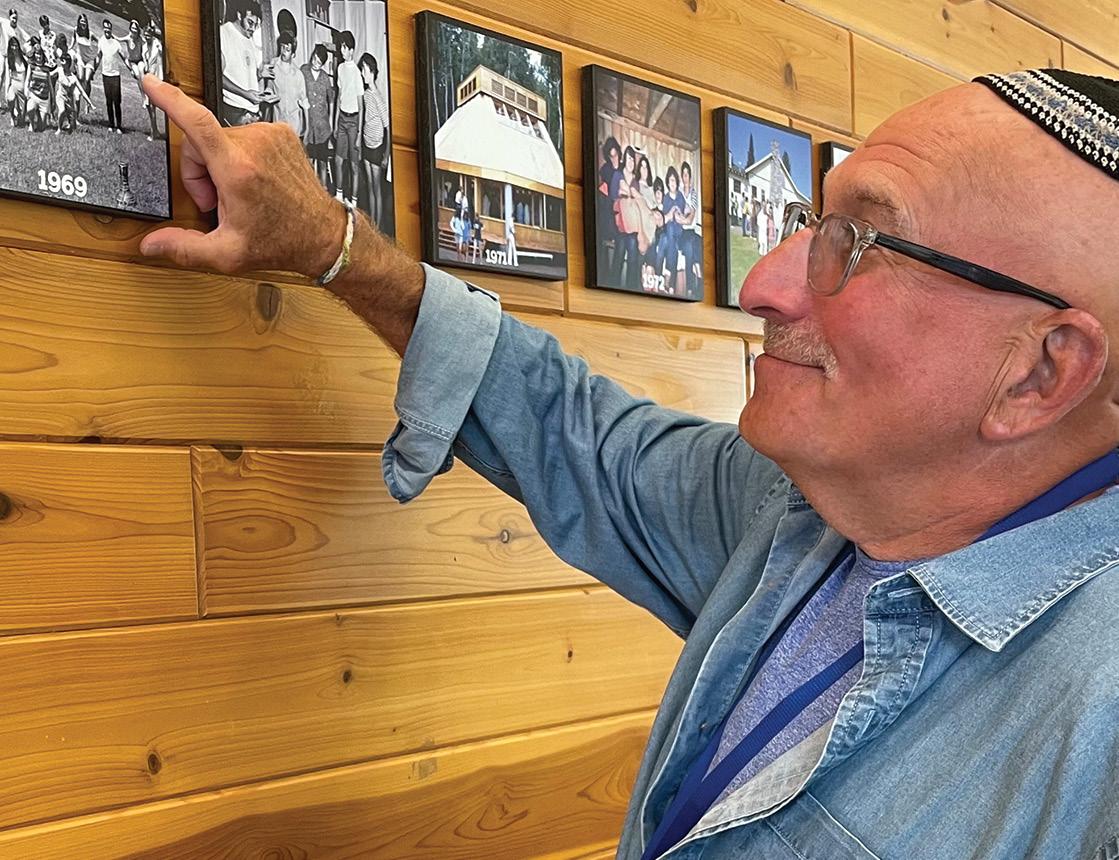
3 minute read
Marc Grey (Nivo ’93) From Machon Point to Tehran Howard Goller (Nivo ’70) From the Ramah Stage
FROM MACHON POINT TO TEHRAN
AN INTERVIEW WITH MARC GREY, NIVO 1993
What years were you at camp?
I was a camper in 1989-93 and on staff in 1995-96.
What are your favorite camp memories?
Oh man — goofy adolescent stuff that would be impossible/ inadvisable to explain but had us in stitches — I suppose the memory is of the laughing itself... along with other impressions that blur across the summers... the bracing cold— not just Buckatabon’s water but the weather too — so many sweatshirt and jeans days … the off-key singing of a hundred kids echoing across the Beit Am walls … Good smells (campfires and bug spray), and horrible ones (the area behind the kitchen still haunts me) … the fuzzy melodrama of the last night of the summer (bus notes!) … that kind of thing.
Favorite spot in camp?
The payphone-tzurhania-office complex was cool and deserves a shout-out, but my favorite spot was probably Machon Point.
Favorite camp activity?
Sailing
You’re a writer and director living in Israel. Have you mostly worked on Israeli film and TV?
Yes, and lots of commercials. Also a really fun web series called Drekula about a depressed overweight vampire that aired on KAN (like Israel’s BBC). It’s also since been posted on Vimeo with English subtitles so that people outside Israel can see it: https:// vimeo.com/channels/drekula
What was it like to work on a big-budget AppleTV production like Tehran?
Fun, exciting, challenging. There was a crazy time crunch + Covid restrictions, so it was intense, but high-pressure improvisational conditions are the norm for Israeli productions, which is anxietyinducing, but also has its own charm — informal, nonhierarchical, you find yourself in some amazing situations. Not to mention writing scenes for Glenn Close.
Why do you think shows with Israel themes have been in such high demand the last 5 years?
I think it started 10+ years ago with Israeli shows like In Treatment and Hatufim (Homeland) that were remade for American TV and shined a spotlight on Israeli creators, who kept making good programs, which opened the door for more creators, etc... and as this trend continued, it dovetailed with a new willingness (at least for Americans) to watch international TV shows in their original language/version (which would have been unthinkable in the pre-streaming era), which also drove audiences to appreciate the kinds of local specific stories that can’t really be remade, so that when a new generation of shows like Shtisel and Fauda came out, they were able to sell and find international audiences based on their appeal as good TV and not necessarily because of any preexisting interest in Israel or Israeli themes. But of course there is that interest — Israel has a long history of captivating people’s imaginations.
How does your camp experience inform your writing and creativity in general?
This connects to another memory — Yishun. Do they still do this? A staff member puts the cabin to sleep, usually by telling them a story. Typically, one of the cabin’s counselors would do this, but we’d also have guest Yishuns (other staff members, some of whom were in high demand because they were good storytellers). I loved me a good Yishun — I still remember the best of them.
If you could have one more day as a camper at camp, what would you do?
Swim to the island.
Any advice for our younger alumni who are just starting out?
Don’t be in too big of a rush to figure things out.
Marc Grey is a screenwriter and director known for Tehran (2020), Dreckula (2019) and East River (2008). He lives with his wife in Tel Aviv.










